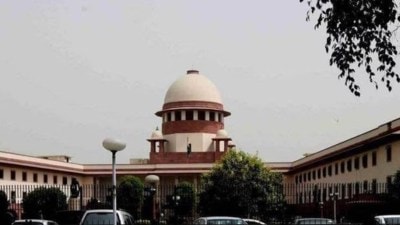DIAT to start diploma in Fire Engineering and Integrated Safety Management
The announcement was made by DIAT Vice Chancellor Surendra Pal on Tuesday.
 DIAT V-C Surendra Pal.
DIAT V-C Surendra Pal.
The Defence Institute of Advanced Technology (DIAT) would start a specialised diploma course in Fire Enginee-ring and Integrated Safety Management from July in response to the requirements from the Armed Forces, Public Sector Undertakings (PSUs) and Defence Research and Develop-ment Organisation (DRDO).
The announcement was made by DIAT Vice Chancellor Surendra Pal on Tuesday. He said that the course would be conducted in collaboration with the Centre for Fire, Explosive and Environmental Safety (CFEES) laboratory of the DRDO located in Delhi. The course would be of a trimester pattern with a duration of one year and the third trimester would be completely dedicated to practical and on-field experience.
“Fire accidents are a major safety concern in industries, Armed Forces and even in our daily lives. Avoiding these accidents has to be the top priority, but if they take place, maximum efforts have to be made to minimise damage to life and property. Our Armed Forces, PSUs and industries are prone to such accidents. And responding to specific requirements from these agencies, we would launch the course from July,” Pal, who is a distinguished space communication technologist, said while addressing the media Tuesday.
[related-post]
Pal added, “Initially, it would be an year-long diploma course and would have a strength from the tri-services, PSUs and DRDO. Later, we plan to expand the scope, increase the duration and also induct candidates from other streams. The course would have modules on nuclear, chemical, electrical and thermal disasters. There would be computer-aided modeling to help students understand the subject. The third trimester would be conducted with the help of CFEES and would be completely practical oriented.”
On May 31, the eighth convocation ceremony of DIAT would be held on its campus at Khadakwasla. Defence Minister Manohar Parrikar and S Christopher, Secretary, Depart-ment of Defence (Research and Development) would be present for the ceremony.
As many as 141 students would be conferred with their degrees, which would include 23 PhDs, eight MSc and 110 MTech degrees in aerospace engineering, electronics engineering, mechanical engineering, computer science and engineering, materials engineering, applied mathematics, physics, chemistry, biotechnology and technology management.








